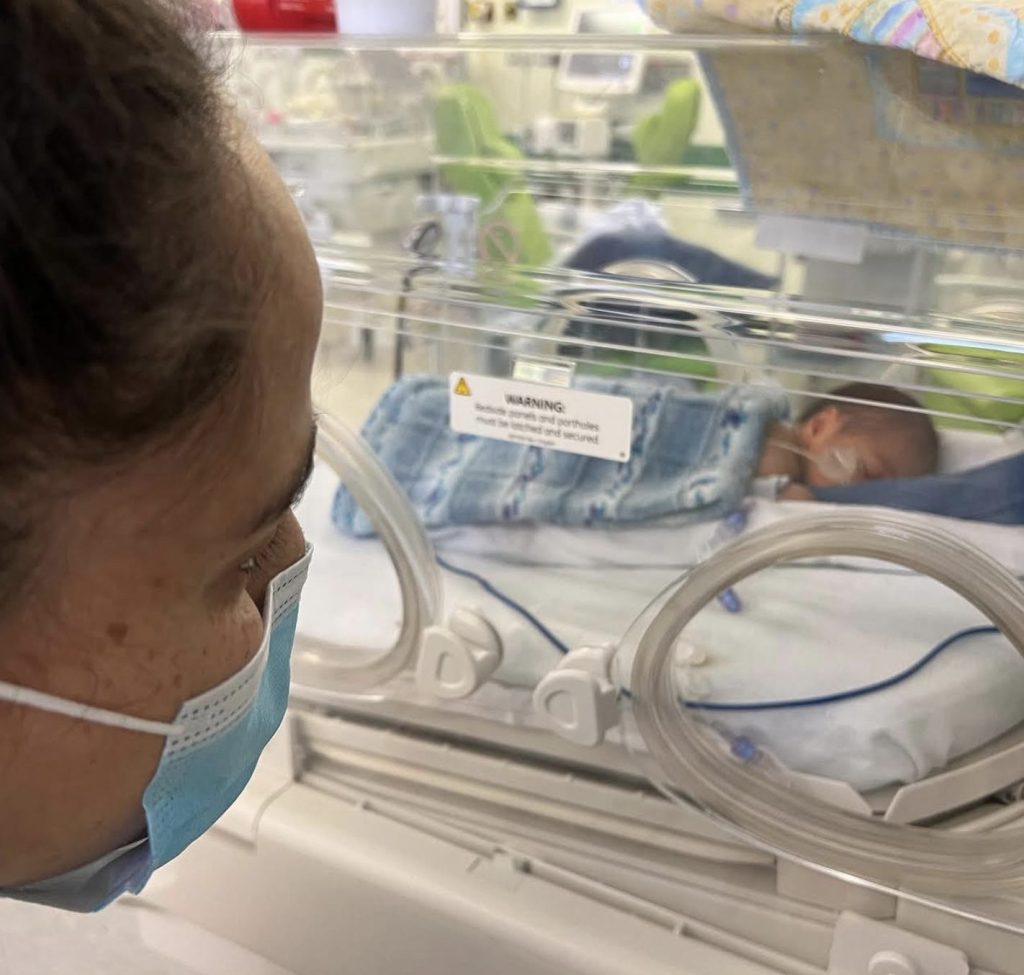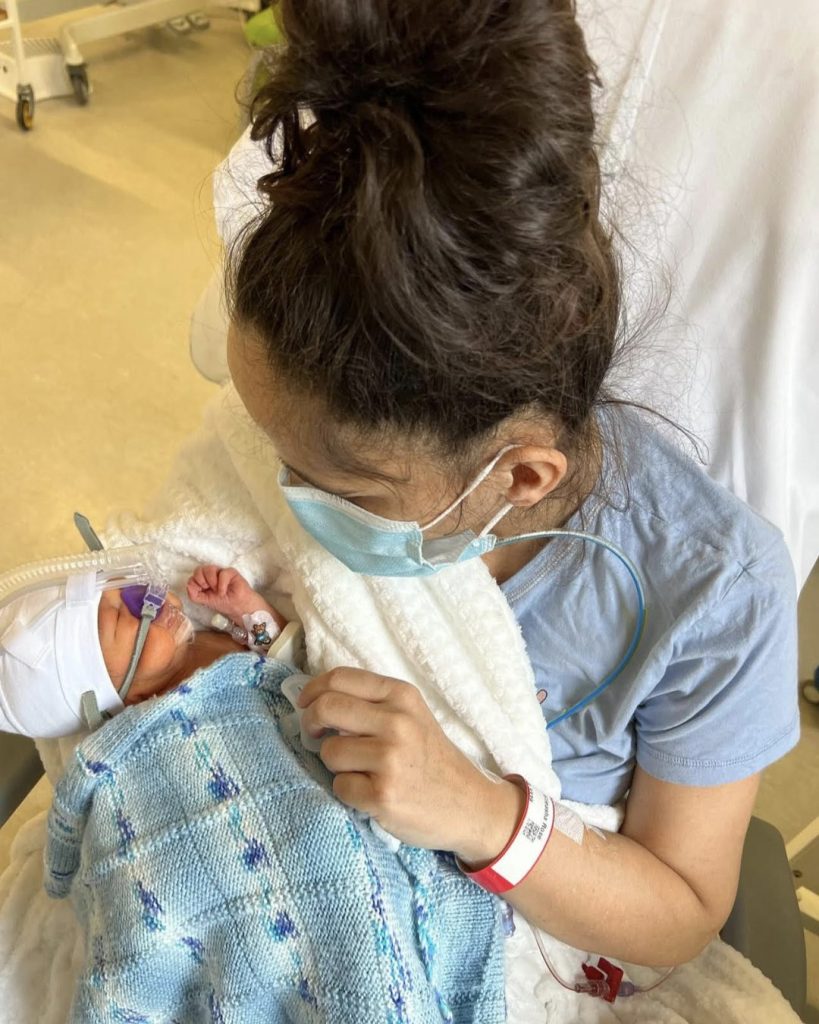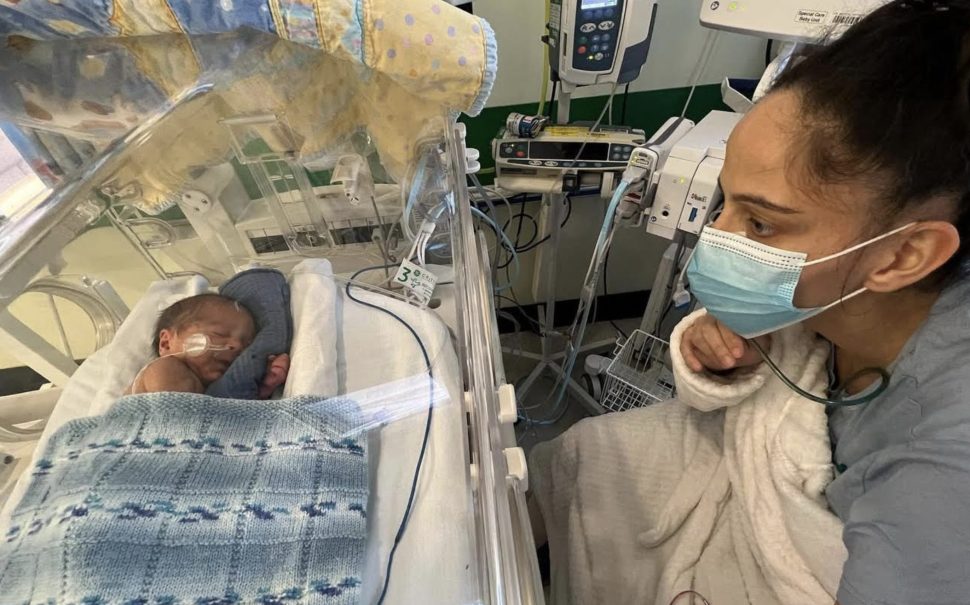Despite the UK having one of the world’s most advanced maternity systems, one in three women experience a traumatic birth in this country. That is around 500 mothers a week.
On 9 January 2024, the All-Party Parliamentary Group (APPG) on Birth Trauma established the first national inquiry in the UK Parliament to investigate reasons and to develop policies to reduce the numbers.
In August this year, Baroness Amos was selected to lead the independent investigation into NHS maternity and neonatal care after feedback from bereaved families about care and safety standards.
Recently, Shrewsbury and Telford Hospital NHS Trust and Leeds Teaching Hospital NHS Trust have been removed from a list to be reviewed for maternity failings across England, leaving many families with unanswered questions.
A mother from Leicester, Elleasha Varia, shared that the birth of her son resulted in four major bowel surgeries and PTSD she still lives with today.
Varia said: “I had to advocate for my own body. I felt like I was just a vessel and my wellbeing didn’t matter. I didn’t feel believed or listened to.”
At 25 weeks, Varia informed her doctor that she ‘felt her insides were burning and ripping apart’, which she believed was a result of expanding scar tissue from previous surgeries.
Varia repeatedly asked for a specialist during her pregnancy, a plea that was consistently ignored.

She was told by a professional that: “It’s all in your head. If you have a problem with pain, you shouldn’t have gotten pregnant in the first place.”
The doctor dismissed her pain and she was out of the appointment ‘within 10 minutes’. Varia later went on to have life-threatening complications.
Varia shared: “I remember saying, ‘I feel like I’m dying’. I was begging for a doctor because I felt something was very, very wrong inside me.”
Varia was given Gaviscon after vomiting blood following a heartburn diagnosis, even after an MRI revealed this was not the case.
She was told she had IBS but later found she had 30 centimetres of gangrene small intestine and was borderline septic. Her affliction later resulted in bowel surgery.
On top of this, after raising a complaint that her catheter was inserted wrong, she was told by a midwife that ‘she should stop wasting her time’. This resulted in a UTI that lasted three months.
A midwife reportedly asked if she was ‘over her little episode’ after a panic attack, and was told by a medical professional that she would ‘get over it in time.’
An inquiry from the International Expert Consensus (Women & Birth, 2024) confirmed that one in three women experienced physiologically traumatic births.
The CEO of The Birth Trauma Association, which helps support mothers who have experienced a traumatic birth shared her thoughts on the inquiry findings. The CEO, Kim Thomas said that ‘post natal care is absolutely appalling’, claiming the worrying evidence that the failings of the maternity ward fall in two key areas: medical training and human empathy.
Thomas said: “There are multiple factors that contribute to birth trauma, usually a combination of medical events that are not always avoidable.
“Things do go wrong and you can’t always avoid it; but sometimes you can. With birth trauma, you want to prevent it rather than treat it, and the NHS does less well there.
“These medical factors are almost always combined with the feeling that they were treated badly by staff. There is then a massive loss of trust.”
Thomas added: “At the very least, maternity ward workers should not be laughing at women.
“They should also listen to women when they say something is wrong and pay attention to that.”

Felicity Brookman, an NHS midwife shared her thoughts on Elleasha’s mistreatment. She said: “There is no excuse for poor bedside manner.”
“Our hospital has a code which we should all follow, which is PROUD, to our patients first: be open and honest, unfailingly kind and determined to develop.
“If professionals followed this, there would be less complaints.”
“The responsibility lies within the antenatal care team.
“As soon as her referral was made to the maternity unit, her medical history should have been flagged and she should have been cared for by the Obstetric Medicine Team all the way through her pregnancy — there has obviously been a big problem with the maternity team realising that she needed to see specialist obstetric medical care.”
Varia shared her frustration on the timeline of events: “Everything I feared would happen, happened: my bowel was damaged, the baby was born early and I was separated from him.
“I’m not going to say I’m psychic, but I know my own body.
“I was being made out to be an irrational and over the top first time mum. They just wouldn’t listen.”
Varia added: “I know how to make a medical argument but it was convincing people that I’m not irrational. Not once was I ever not able to see anybody. It wasn’t a short staff issue. It was a lack of listening issue.”
As the Amos inquiry begins its review into maternity and neonatal care, mothers like Elleasha hope that sharing their stories will lead to meaningful change.
Commenting on the inquiry, Health and Social Care Secretary Wes Streeting said: “I have been appalled by the many harrowing stories I’ve heard from mothers and fathers let down by the NHS.
Through our Plan for Change, we will rebuild the NHS to ensure no family suffers like this again.”
The Amos inquiry’s findings are expected in December and for thousands of families, the outcome may determine whether the next generation of mothers in the UK can finally give birth without fear.
“I never cared about the money,” Varia finalised. “I just wanted to make sure that if I ever had another pregnancy that those errors and mistakes would never happen again.”
Featured image credit: Elleasha Varia

Join the discussion